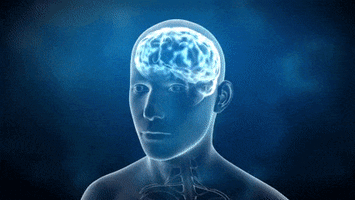
Science Journalism
How deep is your love ?
“Coup de foudre” the French expression for “love at first sight” meaning literally “hit by a bolt” is a strong image for a strong feeling, don’t you think so ?

The French expression illustrates and emphasizes more this idea of strongness than the English one does. Indeed, even the English definition “the experience of starting to be in love with someone as soon as you see them for the first time.” is less impactful than the French one in which the idea of “violence” is way more important: “Experience of a strong and sudden passion for someone”. This idea of violence echoes the idea of strongness. But is this strongness measurable? Because for having suffered “un coup de foudre”, I can assure you that it is really violent. But by the way what is love?
From a scientific point of view, we fall in love when two hormones, called “love hormones”, dopamine and oxytocin are released in our brain. Dopamin is the main hormone implied in the reward circuit. This circuit is stimulating fundamental behaviors such as eating, drinking… It is encouraging us to repeat actions so as to receive the “reward” expected, which is the pleasure. Oxytocin is the other hormone implied in this circuit. It is the hormone of tenderness. It is synthesized by the hypothalamus and released by the hypophyse situated in the base of the brain.
This reward circuit is also the one which is implied in the addiction process, that’s why we are so affected when breaking up, we had become addicted to the person, or to love itself.

Have you ever wondered why some people always need to be in a relationship, repeating romantic experiences as soon as they break up? It is because of this reward circuit which makes them addicted to love. Falling in love brings us a feeling of euphoria, desire, satisfaction and pleasure under action of phenylethylamine, an endorphin (a substance that reduce pain). This feeling is the “reward” expected from the brain and encouraging us to “sustain” our relationship. Strokes, kisses and sexual relations are also acts that strengthen attachment and affection.
“Love is blind” is a sentence we often hear, but what does it really mean ? When we fall in love, the areas of our brain that are implied in reflection and reasoning are deactivated. Therefore we only see the qualities of the person and we idealize them. Moreover, rates of serotonin (which is the hormone linked to temperance and self-control) decrease, and rates of adrenaline increase as well as our heart rate so we are willing to take risks for the person, we often imagine thoughtless plans because we are not lucid anymore. So, if you get completely crazy when falling in love, it’s just normal, some areas of you brain are officially deactivated for a moment and you do ridiculous things, which, I agree, is not very convenient when you want to seduce your crush.
Unfortunately, this period of euphoria and excitation doesn’t last forever. It can last between 2 and 6 years but after the brain gets used to it and as we get used to the partner, this excitation linked to the desire for the person stops because we know them already. Then, only attachment can sustain the couple, which is not liked to desire anymore, but to the care and affection we have for the partner.
Thus, we have seen what is love from a scientific point of view. But is this really what you think love is ? Because when we asked people “What is love for you ?” they all gave a different definition. In fact, as the writer, Leo Bormans explains it “ Everyone has their own definition of love, in order to find our soulmate, we need to look for someone who has the same vision as ours”. But then is it possible to compare loves? Can we have a “universal love’s scale”? Can we measure it, like we would measure an earthquake or pressure? Is love in any way quantifiable?

For Zick Rubin, an American psychologist, love is an observable phenomenon, thus it has to be measurable. In order to establish this scale, he has done some social experiences. He asked some students questions so as to first differentiate the “liking phenomenon” (when you like a friend) from the “loving phenomenon”(the romantic love). Then, the answers to these questionnaires allowed him to “measure” the three variables he defined as being what composed romantic love: attachment, caring, and intimacy.
However, these questionnaires are based on his view of what is romantic love. Moreover, as nobody has the exact same definition of love and no one can feel and live love the same way, is this scale really meaningful?It is like pain. When I hit my little toe against the corner of the table it feels like the end of the world to me. But when my mother broke her arm she was like “ouch! it hurts” and then she moved on. We clearly do not have the same pain’s scale. No one feels everything the same way.
The American psychologist Harry Harlow resumed quite well this idea that love cannot be quantified scientifically by saying that: "so far as love or affection is concerned, psychologists have failed in their mission. The little we know about love does not transcend simple observation, and the little we write about it has been written better by poets and novelists."Thus, for now, it is not really possible to measure love like we would measure how tall you are. But why are we even in love ? We could say that is it for reproduction, but we don’t need to be specifically in love. For example, most of animals reproduce themselves by instinct, without falling in love.
What was initially made for reproduction turned into a very complicated ‘machine’ mixing sentiment to sexual desire, as human beings have an intricate brain and intelligence.
This passion we feel can be very violent and even destructive. Love is a complex chemistry that cannot be quantified or measured as it changes in terms of points of view and persons' sensibilities. But isn’t its passion, its mystery and its complexitivity that makes love so attractive? What about you, would you be willing the be hit by a bolt ?

Eve de Vincelles, Marie Beix

